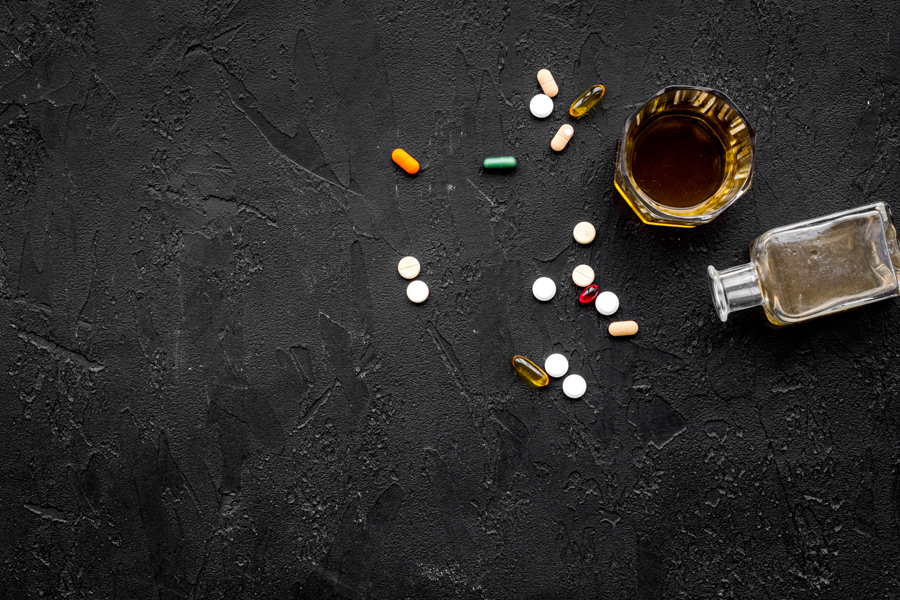Alcohol can be deceptively addictive. It’s a legal substance, and its use is often accepted in social settings. In an attempt to intensify the effects, it’s quite popular for some to mix the drug codeine and alcohol. This is a particularly dangerous combination that can lead to several serious side effects which require specialized substance abuse treatment programs. Keep reading to learn more about codeine and what happens when mixing with alcohol.
About Codeine

Codeine is a prescription opioid painkiller. It can also be a useful cough suppressant. Available only by prescription, this drug decreases pain significantly and reduces coughing. It’s quite effective and safe when used for its intended purpose, but it can be incredibly dangerous when used in excess or for recreational purposes. This is especially true when mixing with other substances such as alcohol.
When misused, codeine can produce a euphoric high and is potentially addictive, particularly when users develop a tolerance that requires them to take more of the drug in order to receive the same effects they once did. Mixing alcohol and codeine only intensifies that high. Taking too much of this combination can lead to overdose, and this can be fatal.
Dangers of Mixing Codeine and Alcohol
When you combine codeine and alcohol, the effects of both substances are increased. The presence of alcohol has the potential to cause a rapid release of codeine into the system, leading to intensified intoxication due to elevated blood levels. Judgment becomes extremely impaired when you take alcohol and codeine together, leading to risk-taking behaviors such as dangerous driving.
There are a number of dangerous side effects that come with mixing alcohol and codeine. For example, some of these include:
- Mental impairment
- Severe drowsiness
- Headaches
- Delayed motor skills and reactions
- Memory loss
- Low blood pressure
Some side effects can be extremely risky to a user’s health. Severe respiratory depression can occur when codeine and alcohol are combined. Fainting, coma or even death are also possible from this combination.
How Bayview Recovery Can Help

A codeine addiction rehab center in Tacoma, WA, such as Bayview Recovery is uniquely positioned to help you or a loved one overcome this risky habit. Our staff have the expert knowledge and possess the resources to make recovery less stressful and more accessible.
Some of the services Bayview offers include:
- Partial hospitalization programs
- Intensive outpatient
- Outpatient
- Extended care 90-day program
- Partner with detox facility
- Dual diagnosis therapy
- Trauma therapy
- Aftercare
If you’re seeking drug and alcohol rehabilitation in the Pacific Northwest, you’ll find that Bayside Recovery is one of the premier facilities in the region. Overcoming substance abuse is stressful, and it can take a toll on your life. You don’t have to face this difficult time alone.
Take control of your life and give us a call at 855.478.3650. We’re happy to answer your questions and to help you begin the path to recovery.

 Dr. Dave Cundiff, MD, MPH (Medical Reviewer)
Dr. Dave Cundiff, MD, MPH (Medical Reviewer)






